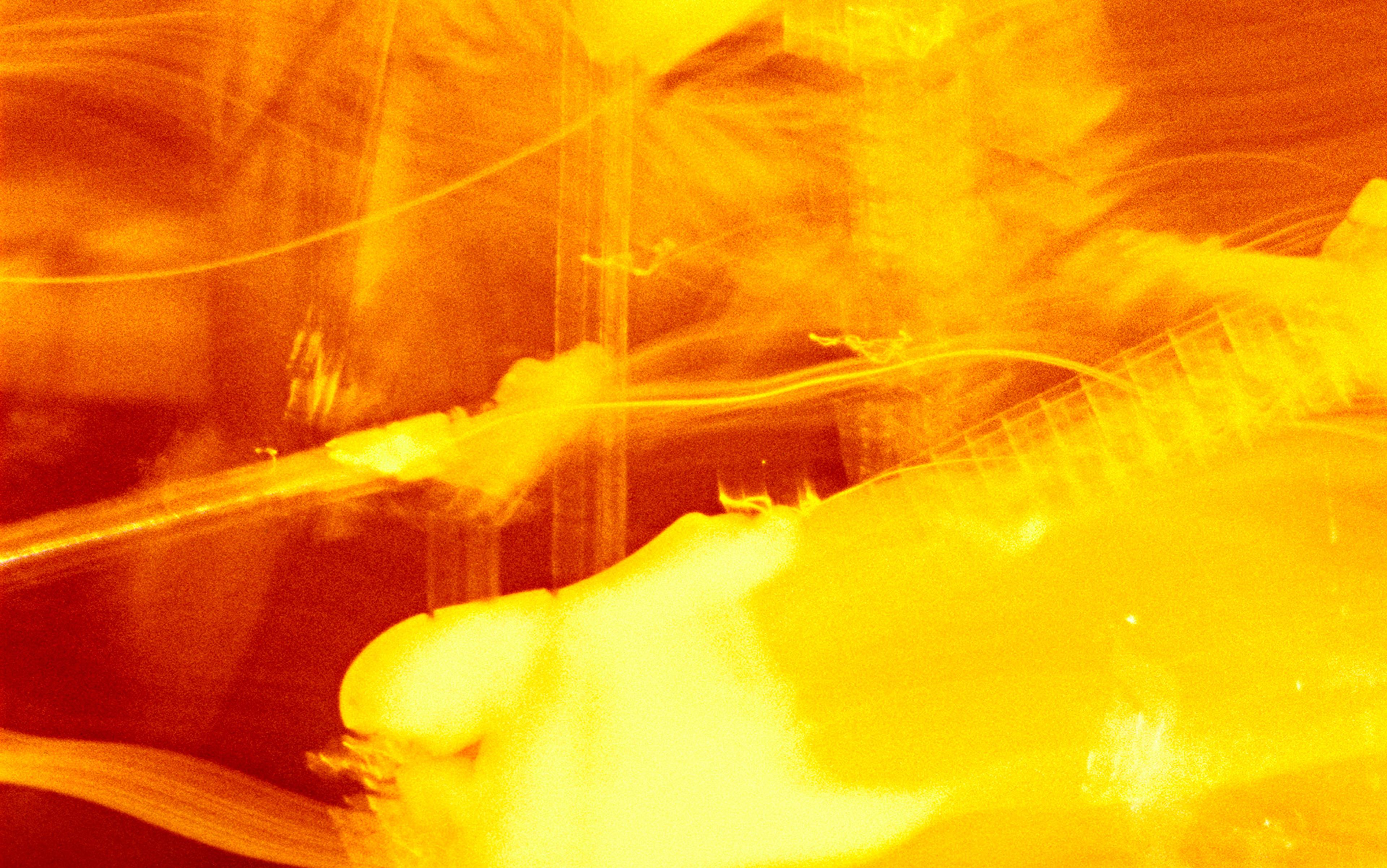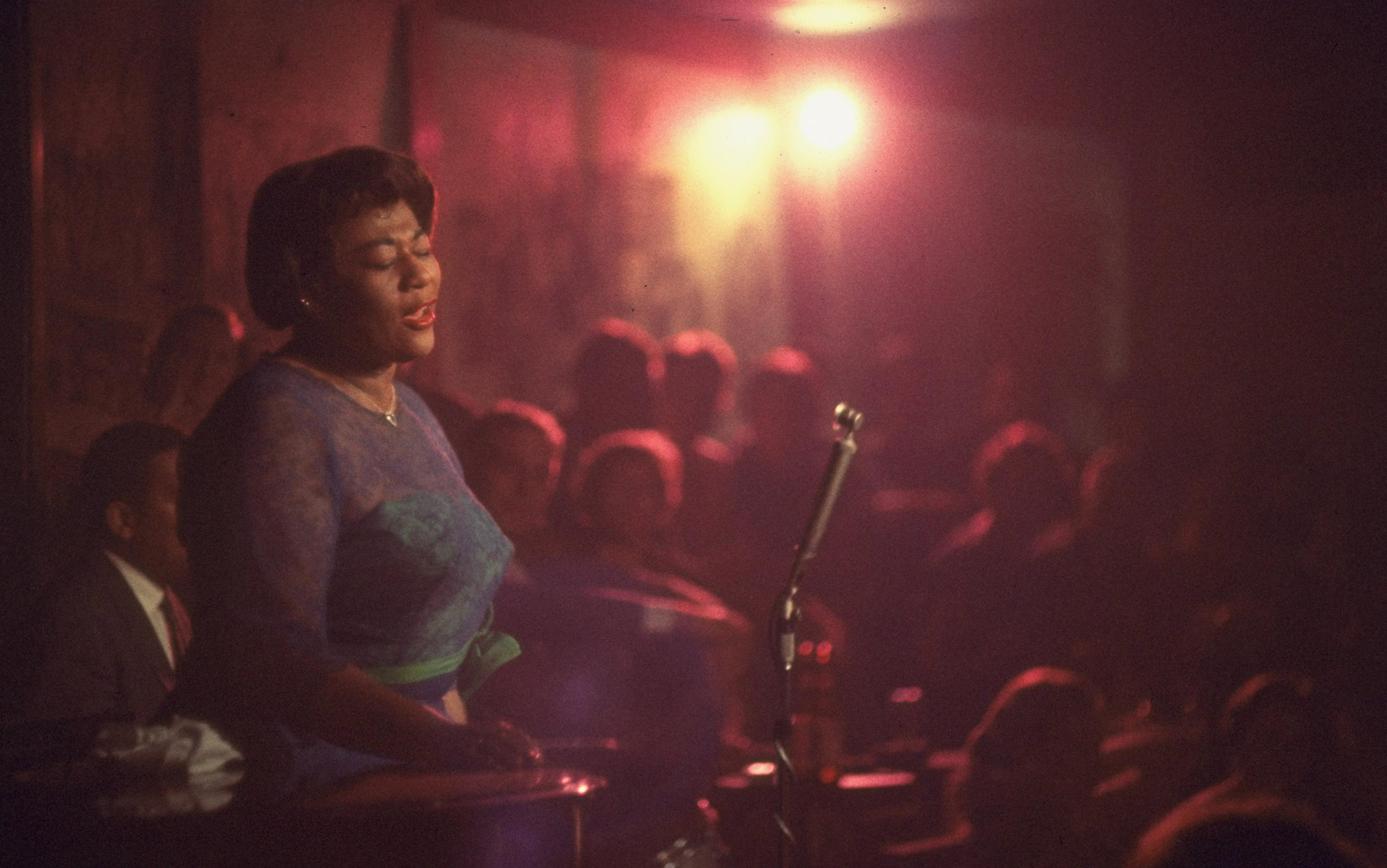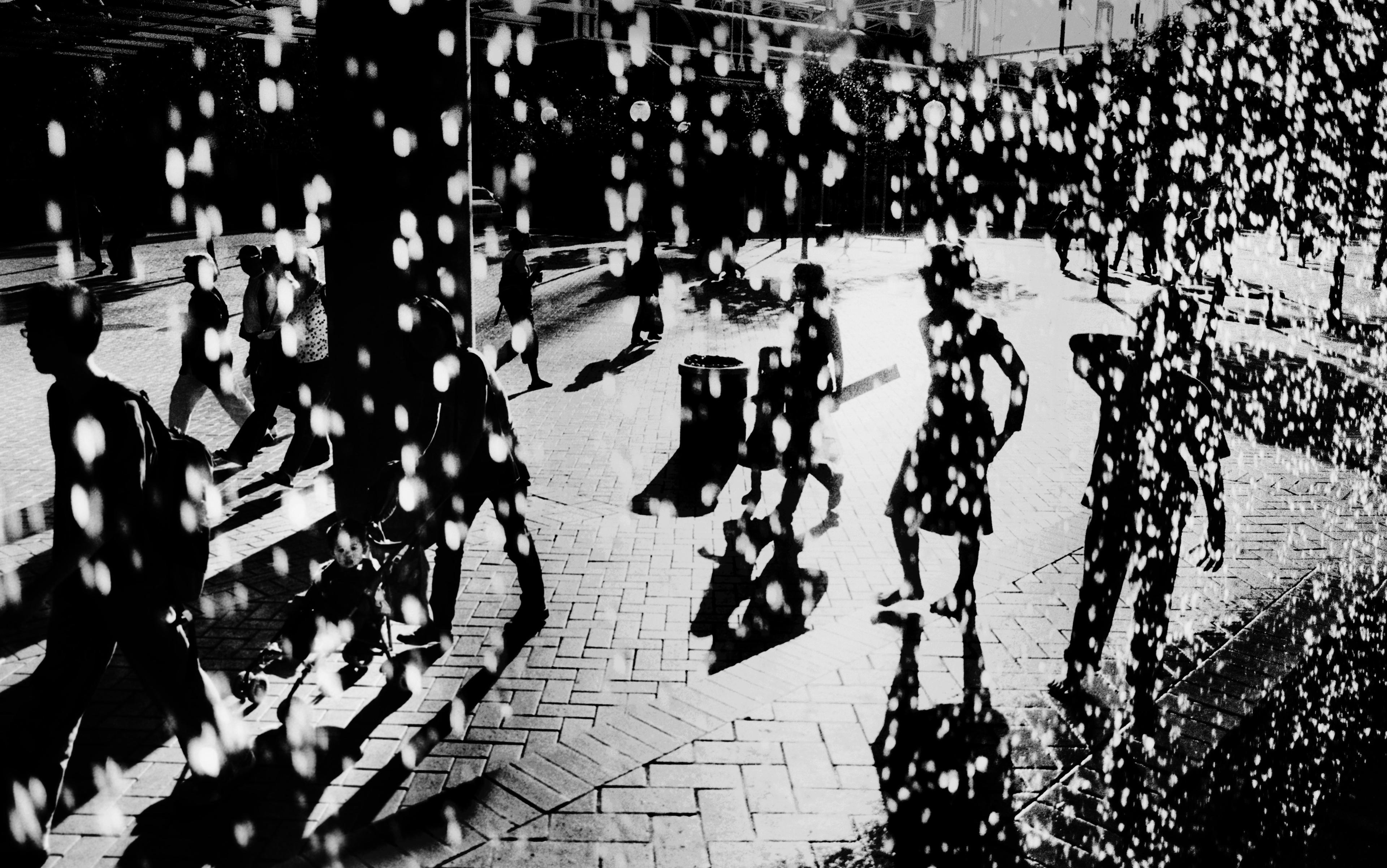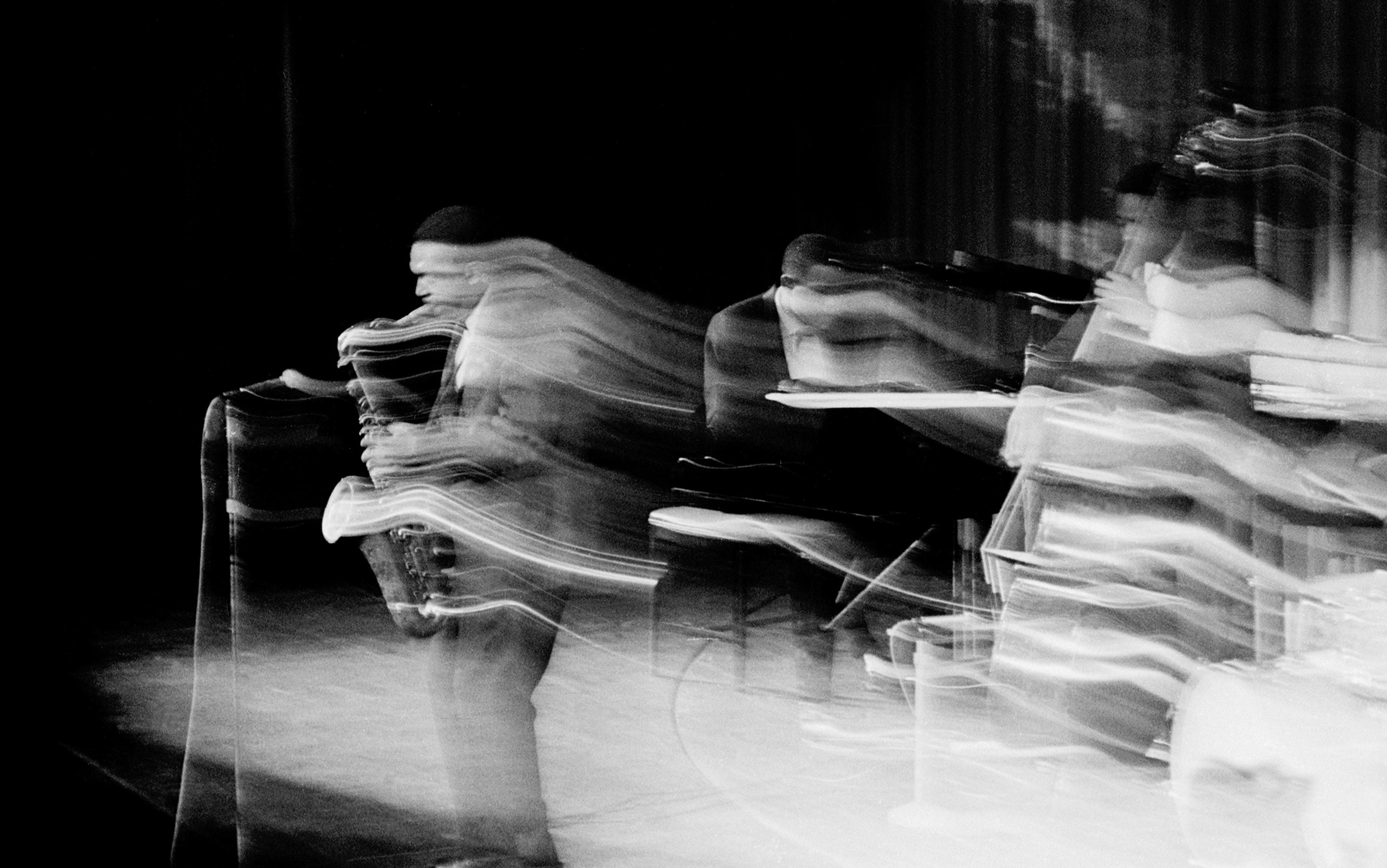When John Lennon was asked in 1975 why so many adults disliked rock and roll, calling it the ‘devil’s music’, he replied: ‘I always thought that it’s because it came from Black music.’ Reflecting on the past 400 years of white supremacy in the United States, including the recent attempted insurrection at the US Capitol in January 2021, I often wonder what Lennon would say of us today. Would he tell us to ‘Imagine there’s no heaven’ or would he sing ‘Stand by me’? Would he cry ‘Mother’ or remind us that love really ‘is the answer’?
I am a professor of philosophy, and I have always thought in sound. Allow me to fine-tune, in my own way. One of the distinctive features of my cognition is that not only do I think with sound and music; I also don’t think in images during my waking hours (although I dream vividly and visually at night). This lack of visual imagery is known as aphantasia, partial in my case. Along with another condition known as mild auditory processing disorder, my learning differences have resulted in tremendous difficulty and inconsistencies in reading, writing and, sadly, even speaking at times. I specialise in the thought of the 17th-century philosopher Baruch Spinoza, and I often wonder what he would have done with the aphantasiacs. He understood that the working of the imagination – often believed to be the source of mental imagery – can either enhance or weaken one’s ability to thrive, depending on which ideas of reason they were paired with. Indeed, I completed my doctorate only because of patient teachers who care deeply.
It’s an odd thing to try to explain to others what it means to have the experience of an empty head while I’m awake. Experts in aphantasia call this a trouble with one’s ‘mind’s eye’. I disagree. Not only is consciousness irreducible to mere brain matter – as our ideas are not actual objects I can put into your hands – but my neurological particularities might also explain my connections to thinking in sound. We humans are not only made of words, as the music historian, jazz enthusiast and former graduate student in philosophy Ted Gioia demonstrates in Music: A Subversive History (2019). Gioia’s book has set the rhythm for my own thoughts on music and sound. The point is, if I can teach and work with challenging philosophical systems without the use of images in my mind’s eye, not to mention struggling with the words, then imaginative pictures (even imagining language) might not be as important to reasoning as some people think. Spinoza might agree: rational ideas have laws of nature uniquely their own.
I can’t spell or follow correct grammatical rules. Just ask my editor. Yet I can pick up and identify the sounds of almost any language easily, even if remembering the words is the problem. This ability has something to do with memory, but it’s been the case ever since my brain has been forced to arrange the words I heard into a semi-acceptable and then mostly acceptable communicating language. Memory experts understand that song and story together can enhance memory. Gioia writes in support of these auditory aids, noting the cross-cultural history of the use of rhythm and sound since the beginning of the human species. I can’t read music or do upper-level mathematics, but music certainly helped me to learn Spinoza’s Ethics, one of the most logically challenging systems ever devised in Western philosophy – a system that became quite obvious to me in its logical beauty and creative, affirmative force.
Even if I find language to be a challenge, music and sound can assist. I am an avid music experiencer, a sound adventurer, and a lover of almost every genre of music – although, like all of us, I do press repeat on some of my favourite songs and sounds. The pandemic has me reaching toward those I care for most, which at present concern the head and the heart. That’s also the name of the musicians featured here – and their songs serve as a hug, a thread of connection and a musical love letter to a dear friend and muse, far away.
As a child, I used to stare at the keys on my grandmother’s piano, teaching myself about sound and thought, often when I couldn’t find the right words to express myself or explain my experience. When I was very young, I heard words backwards by syllable. Perhaps it’s not surprising, then, that I had my own language when learning how to speak? This ‘problem’ corrected itself within those first few years of life but, to this day, my 92-year-young ‘Grandma’ still signs some of her letters ‘Love, Magra’.
On my second piano lesson in my early 20s, right after graduating with a psychology degree and a few classes short of a double philosophy major, my gentle piano instructor said: ‘You’re a natural! Do you want a piano?’ He was offering me an upright baby grand from a 1960s commune. All I had to do was transport it. (Helpful hint: you can easily slide a large piano across the floor on pillows.) Now I had my own piano and I tried to learn how to play by ear. But, to this day, I still can’t read sheet music, and most piano teachers won’t teach you if you can’t ‘read’ music.
Not all sounds need to or can have names, and yet we both experience them and also learn from them
This attention to notation perhaps dates back to the ancient Greek philosopher and mathematician Pythagoras, who tried to make a measured metre from the magic and power of the sounds he heard: of ironsmiths in the marketplace, of good company and conversation, of falling pebbles. (Pythagoras once held up a stone before one of his students and declared: ‘This is frozen music.’) Before Pythagoras, Gioia notes, ‘women played a central role in music – especially the drumming that we have come to associate with trance states.’ However, once Pythagoras hit the scene, everything became about the more male domains of mathematics and logos (reason) – that is, measurement and language, instead of the aulos (a pan-pipe made of reeds) and song. As Gioia writes:
Once [logos] went mainstream, it would punish and censor in turn, so much so that almost all of our subsequent sanctioned narratives about music, both its history and theoretical underpinnings, are distorted to some degree by Pythagorean biases … In other words, the very practice of legitimisation is an act of distortion.
Such interference with the immediacy and power of music and sound remains in force to this day. Gioia goes on to describe a story from a specialist in avant-garde classical composition, who told the author that he’d been attacked at a conference recently for focusing on how the work ‘sounded’: ‘He was told repeatedly by his peers that he should ignore such banal considerations, and focus instead on the compositional strategies employed.’ Yet the mystic Eckhart Tolle has also noted that some of our most profound moments are those we encounter without description – such as any new (positive) experience in a place we’ve never visited before, or delicious meals we’ve never tasted before, or beautiful sounds and instruments we’ve never heard before. The unnameable and the unfathomable can be striking, affective; not all sounds need to or can have names, and yet we both experience them and also learn from them. New research on binaural music – where the frequency of sound is slightly different in both ears – suggests that such noises can alter our brainwaves and mental processes for the better. Gioia notes that in ‘the heart of the atom’ particles move at extraordinary speeds of up to 100 trillion times per second, ‘creating a tone some 20 octaves above the range of our hearing’.
Along with touch, sound is one of the first senses to develop – long before sight or smell. Developing human foetuses can hear their mother’s heartbeats (and voices) in utero. We hear gentle, albeit muffled sounds while developing, less muffled and more acute sounds when we’re born, definitely all kinds of muffled and acute sounds while alive – and according to many spiritual traditions, we might hear the most perfect music when we die. Perhaps this is another reason why sound and rhythm are such universal forces: they’re some of the founding experiences of all human beings. Gioia opens his work on music by noting that, in Hindu iconography, Shiva is holding a drum at the moment of creation; an apt image, given that contemporary science dubs the beginning of the Universe ‘the Big Bang’.
I kept that piano for several years, and then for a few years more in storage. It helped me dream of those days when one of the great loves of my life used to play for me. We would break into our university auditorium at midnight and rush the stage. With one light bulb hanging above our heads in the rafters, I lay under the keys, closed my eyes, and felt his vibrations and energy radiating through my body and mind as he played those keys well into the night, anything by the Beatles or Billy Joel from memory.
Spinoza understood the power of the imagination when coupled with the force of rational ideas. Together, they make what we might call a kind of music – something that transcends any one narrative, description or formal use of language altogether. For Spinoza, reason is something distinct from imaginative knowledge, but language resides within the imagination. Yet while some believe that music and sound exist in a domain apart from reason, I hold that they can still enhance deep thinking and reflective thought. Perhaps even more importantly, sound and music can be felt. For Spinoza, all sensations are partial and imaginative, and must be converted into knowledge. As Gioia notes, singing releases oxytocin into the brain and body, which in turn creates a feeling of unity, collaboration and cooperation with those around us.
This felt dimension of knowledge can be a problem for those who prefer instead to measure and track. You can’t feel what another is feeling; often, the only way to measure the experience of another is through language, logical reasoning and, perhaps, various forms of technology, but these aren’t the only ways. If I think in sound, and even if I can send only a virtual hug to your ears in song – if they act as a kind of glue for my memories, or simply reduce my anxiety with language itself – then there’s even more that can’t be measured. Perhaps it can only be felt first and then legitimated later?
‘Both the length of respirations and the total breaths per minute are locked in to a spooky symmetry’
If sound and music transcend language and logic, how can they assist anyone to do something as complex as philosophy? Plato might have understood this paradox, but in a hidden way. He might have even coded the Republic using Pythagorean ideas to hide his theory of just how powerful music and sound actually are for human beings (something that shamans and some indigenous cultures have always understood). Citing research by the musicologist J B Kennedy, Gioia writes:
If you break down the 12,000 lines of Plato’s Republic into 12 sections of 1,000 lines each, each equivalent to a note on a scale, you will find explicit references to harmony, music, pitch and song recurring at precisely the most consonant intervals. Darker themes, relating to war and death, emerge at dissonant intervals.
Gioia observes that even Socrates, Plato’s mentor, grasped the value of concealed meanings and withholding the kind of information that could get you killed – although I’m not sure how successful he was at that practice in the end. Socrates was unjustly put to death for proving that freedom of thought is distinctly human, and that it might be connected to our souls, including their possible afterlife. The idea of sound and rhythm, especially as it links to breathing and health, is a much more significant connection than many today believe. In Breath (2020), the journalist James Nestor emphasises that modern biomedical science is beginning to verify certain rhythmic and ancient Eastern breathing practices that lead to significantly better health: ‘the most efficient breathing rhythm occurs when both the length of respirations and the total breaths per minute are locked in to a spooky symmetry – 5.5-second inhales followed by 5.5-second exhales, which works out almost exactly to 5.5 breaths a minute.’ Moreover, Nestor observes that these techniques are of the same rhythms as acts of prayer:
When Buddhist monks chant their most popular mantra Om Mani Padme Hum, each spoken phrase lasts six seconds … The traditional chant of Om … takes six seconds to sing, with a pause of about six seconds to inhale. The sa ta na ma chant, one of the best-known techniques in Kundalini yoga, also takes about six seconds to vocalise, followed by six seconds to inhale … Japanese, African, Hawaiian, Native American, Buddhist, Taoist, Christian – these cultures and religions all had somehow developed the same prayer techniques, requiring the same breathing patterns. And they all likely benefited from the same calming effect.
The idea of harmony and rhythm, musically and physically, has been the subject of careful attention from philosophers. In Book III of the Republic, Plato is careful to distinguish between the concept of language on the one hand, and the concept of harmony and rhythm on the other – although he needed both to better articulate the meaning of the human soul. He claimed that there is a natural rhythm, grace and harmony for all things: ‘weaving, embroidery, architecture, and every kind of manufacture; also nature, animal and vegetable. In all of them there is grace or the absence of grace.’ This extends to acts in service of the community. I often think Plato might not get enough credit for his communally oriented thinking; but, then again, he might have borrowed some of this from indigenous cultures before him too. For Plato, if the youth are to do what they’re good at – to add their individual, natural talents to the collective – they must also make harmony and grace ‘their perpetual aim’. Nonetheless, they can’t get lost in mystical chants or sad songs. Aristotle thought that the aulos made a disgusting sound, and Socrates and Plato frowned upon it too.
We can debate what Plato intends by the concept of grace, and many have for thousands of years. But his identification of the role of harmony in promoting cohesion and cooperation – of sound and music, or at the very least of singing together – is surely right. It even created some actual magic. As Gioia demonstrates, singing was a vital collective activity for the earliest humans, and remained the way of many shamanistic cultures for centuries, up to and including today. Plato was worried about those darn flute players; they couldn’t speak while playing, and flutes were known to be used by those he believed to be less well-educated. But he might have realised his error upon his death bed: in a moment of irony that’s not lost on philosophers, and after having written and spoken so many words, Plato requested a flute player to ease him into death, and perhaps into the next life too.
‘Music of the right kind can serve to orient and anchor a patient when almost nothing else can’
To Plato’s credit, his scepticism of music flowed from the idea that we can’t get lost in a trance all day – not if we’re going to get work done for ourselves and our neighbours in a democratic, free, educated and creative society. Plato understood that music and sound had the power to transform humans and elicit profound emotions; he desired that great poets and artists create certain rhythms and sounds for times of war, and other songs for times of peace. I too make love not war, but so many haven’t truly heard me. Perhaps, with the mild auditory processing disorder and more, it was not their fault either. This is the challenge of learning differences. I am differently abled and the more music playing the better!
Music, then, can be a form of healing. The late neurologist Oliver Sacks studied the phenomena of music and sound, being able to bring forth seemingly lost memories in his patients. In Musicophilia (2007), Sacks writes that music therapy with those with dementia ‘is possible because musical perception, musical sensibility, musical emotion, and musical memory can survive long after other forms of memory have disappeared. Music of the right kind can serve to orient and anchor a patient when almost nothing else can.’
These healing properties apply to our bodies as well. The neurosurgeon Bernie Siegel often played music to his patients in the operating room. While they were under anaesthesia, Siegel whispered into their ears that they could relax, enjoy their favourite music or sounds and, while doing so, he would appreciate it if they would also bleed less during surgery. To his colleagues’ surprise, this appeared to work: according to Siegel, his patients made incredible recoveries in very short periods of time, and bled much less than the average patient during surgery too. Measurable effects following metaphysical suggestions.
Throughout the global pandemic, I’ve noticed how much we need our favourite sounds – sounds that comfort, sounds that heal; the sounds of sports fans, the sounds of lovers, friends, family; the sounds of our pets, of nature. That’s also how sound heals. It’s both individual and communal, a collective of individual sounds. Sound includes rhythm, as we noted above, and rhythm is about timing. The philosopher Thomas Nail has developed a new philosophical ontology – a theory of what it means ‘to be’ – which is something we don’t get very often in philosophy. In Being and Motion (2018), he builds on the ancient philosophy of Lucretius, who argued that all of nature (including space and time) is composed of flows, folds and fields – that is, entropic arrangements and unfolding processes always in motion. When you go to measure anything, you need space and time to do it. But, as Nail convincingly argues, such practices wouldn’t be possible if the flows, folds and fields of motion and movement itself were not already in play. Consciousness never stops moving.
So while some words might be lost on me, motion and rhythm are not. If motion comes first for some philosophers, then our bodies, at least for both Gioia and Nail, were the first instruments for the first humans, hundreds of thousands of years ago. ‘Kinetic sounds did not emerge ex nihilo from the speaking body; they were gathered from elsewhere,’ Nail writes. ‘All human phonemes already existed in natural and animal sounds before the human ear ever heard them.’
Each major shift in technology changes the way people sing
We certainly need a lot of healing right now. Art therapists, not to mention musicians and music therapists, have a nuanced understanding of how music and sound can soothe and regenerate the body and mind. Recall that, in philosophy, the mind is not the brain. Sound can serve to stimulate the other senses too, including provoking images and sensations of certain scents or colours, such as for those who have synaesthesia. Sound is also about vibration, and music is also about energy. As the inventor Nikola Tesla said in the 1940s: ‘If you wish to understand the Universe, think of energy, frequency and vibration.’
What will the new sounds of our world feel like, I wonder? Gioia writes: ‘Each major shift in technology changes the way people sing.’ More importantly perhaps, he prophesies that, if authorities don’t interfere, ‘music tends to expand personal autonomy and human freedom’. I’ll be leaving academia soon after 15 years or so of successful teaching. I’ll miss the students and classroom tremendously, but I need a break from all the monitored words and background authority figures. They’ve missed a few notes, and I can sing from anywhere. I’ve been ‘in college’ since 1994, on and off. My writing has improved, but barely. Reading is still very challenging and yet I do it daily. As for speaking? That depends on who I’m talking with and how I feel when I’m with them. I have new notes to play now. I’ve made my small contribution to the history of philosophy, often because of the caring heartbeats and ideas I’ve shared with others.
As fellow travellers in the balancing of our souls, humans can strive to maintain their artistic and scientific guardianship over truth, beauty and goodness. But nature is so much more than what humans can guard, name or define. As Gioia sings: ‘Music is always more than notes. It is made out of sounds. Confusing these two is not a small matter … music does not happen in the brain. Music takes place in the world … Songs still possess magic, even for those who have forgotten how to tap into it.’ Presto!






